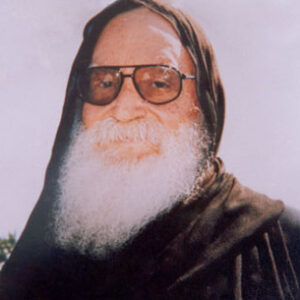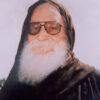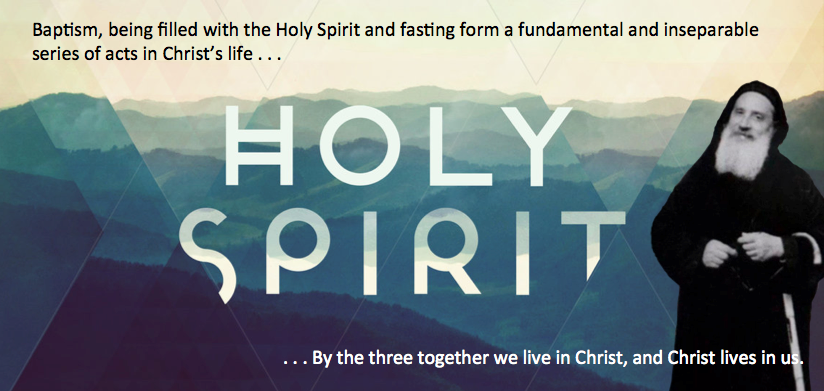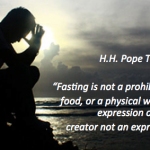In His forty days experience of absolute fasting, Christ laid down for us the basis of our dealings with our enemy—along with all his allurements and vain illusions. ''This kind cannot be driven out by anything but prayer and fasting'' (Mk. 9:29). For when a person enters into prayerful fasting, Satan departs from the flesh. As …
In His forty days experience of absolute fasting, Christ laid down for us the basis of our dealings with our enemy—along with all his allurements and vain illusions. ”This kind cannot be driven out by anything but prayer and fasting” (Mk. 9:29). For when a person enters into prayerful fasting, Satan departs from the flesh.
As the Son of God, Christ did not need fasting, nor did He need an open confrontation with Satan or baptism or filling with the Holy Spirit. Yet He fulfilled everything for our sake so His life and deeds would become ours. If we know that Christ was baptized to ”be revealed to Israel” (Jn. 1:31), it follows that being filled with the Holy Spirit meant ”being tempted by the devil”. This was so He could be revealed before the spirits of darkness, and openly enter into combat with the devil on behalf of our race. Fasting was to elevate the flesh to the level of war with the spirits of evil, those powers that hold sway over our weaker part, the flesh.
The reader may notice that baptism, being filled with the Holy Spirit and fasting form a fundamental and inseparable series of acts in Christ’s life that culminated in perfect victory over Satan in preparation for his total annihilation by the cross. It is then extremely important to accept and to feel the power of each of these three acts in our depths and draw from Christ their action in us as they worked in Him, so that His same life may identify with ours. The ultimate aim of baptism, of being filled with the Holy Spirit, and of fasting is that Christ Himself may dwell in us: ”It is no longer I who live, but Christ lives in me” (Ga. 2:20).
In baptism the connection with our old Adam is cut off for us to receive our sonship to God in Christ. In being filled with the Holy Spirit, our connection with the devil and with the life of sin is cut off for us to receive the Spirit of life in Christ. And in fasting, the connection between instinct and Satan is cut off to give the flesh victory in its life according to the Spirit, in Christ. We can never sever these three acts from each other; baptism grants spiritual fullness, and spiritual fullness grants (by fasting) victory for the flesh to walk in the Spirit. By the three together we live in Christ, and Christ lives in us. The dimension of time in these three acts does not weaken their merging together, nor does it separate one from the other. Baptism in childhood, the spirit’s fullness in mental and psychic maturity, and fasting, which concludes these three acts, could not be seen separately in the spiritual vision. Although they occur separately in time, out of human necessity, they are one act spiritually. They spring forth to us from Christ who is One Act, One Word. In all three acts, Christ dwells in us personally to give us His fullness, image, and life, so that we might live Him as ”One Act” and ”One Word”, and no longer live our own selves in our torn and disrupted image.
The point to understand is that fasting is a divine act of life, which we receive from Christ complementary to baptism and fullness. Since its beginning, the Church has been occupied with infusing into its own body the acts of Christ’s life so they would become life-giving acts to all its members. If the Church imitates Christ in its life discipline, it is because it has been given grace and authority by God to possess Christ Himself as a life of its own. The Church, which is one with Christ, is a lively and efficacious image of the life of Christ. The Gospel describes it as ”the bride of Christ” united with her Bridegroom. Though the Gospel declares that the Church has become one with Christ, it still reiterates that Christ will remain a Bridegroom on His own, no matter how much He offers Himself. Neither does Christ become a Church, nor the Church become a Christ. This confirms to us that we, as members of the body of Christ, always need to strive to acquire Christ to become more like Him and to be a bride ”without spot”, a betrothed ”pure bride” in a perpetual state of betrothal like the Virgin who conceived and bore the Logos. Virginity here is ”to keep oneself unstained from the world” (Jm. 1:27). Being stained is the ungodly union between Satan and ”the lust of the flesh”, ”the lust of the eyes”, and the ”pride of life” (1 Jn. 2:16). These three bonds were united and shattered by Christ during His fast on the Mount of Temptation. He gave us the shattered bonds as an inheritance to live out and carry into effect by fasting in the fullness of the Holy Spirit and in the sacrament of baptism.
Fasting in this sense is one of the fundamental phases that Christ underwent. We have never been able to claim that we live in the full maturity of Christ, or that Christ abides in us in His full measure, particularly if we overlook fasting. If baptism is one phase and crucifixion another, fasting is an extremely important stage between baptism and crucifixion. Fullness with the Holy Spirit, which Christ consummated by baptism, elevated the flesh to the level of extraordinary fasting, i.e. total deprivation of food and drink, utter seclusion and prayer. He thus raised the flesh to the stage of the cross.
Join Us: Sign Up Today!
Tags:












